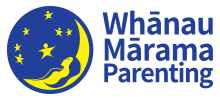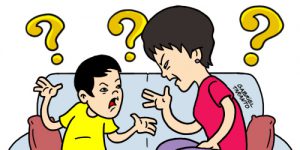It is very important that we positively connect with our children by acknowledging them in a loving and supportive way. In fact, we are encouraged by New Zealand research to even work consistently towards increasing our positive comments or positive acknowledgements. (1)
Notice the word ‘connecting’ in the examples of how we can positively acknowledge them everyday. What comes out of our mouth either has the power to either connect and strengthen our child’s (or teen’s) heart connection to us or do the opposite.
- Connecting by Words of Praise
Praise is for something our child or teen has done. For example: “Thanks for helping to clean up the mess”, “I appreciated your help bringing in the shopping”.
- Connecting by Words of Encouragement
Encouragement are the words we use to ‘instill courage to achieve more’. For example: “If you keep practicing you will get there”.
- Connecting by Our Body Language
A large percentage of what we communicate is via our body language. For example: Blowing a kiss, a twinkle in the eye, a smile, a nod and even stopping what we are doing and looking in their direction when they speak to us.
- Connecting by Describing What We See
Descriptive comments are saying what we see, narrating the behaviour or stating the obvious. For example: “OK, you’ve got your bag”, “I can see you’ve washed your hands”, “I noticed how you were so kind to your brother”.
- Connecting by Words of Affection and Endearment
Words of affection and endearment are words we say to our child for who they are or what they are. NOT WHAT THEY HAVE DONE. For example: “You have beautiful eyes”, “I love you so much”, “You’re my big boy”, “Honey”, “Sweetheart”, “I love you”.
- Affirming our child’s intellectual process.
For example: “Good thinking” “You’re clever” “Yes, You are Right …”, “You’re good at thinking up ideas”.
Positive Acknowledgement from a scientific point of view
Did you know that “… up to 60% of the human body is water, the brain is composed of 70% water, and the lungs are nearly 90% water. Lean muscle tissue contains about 75% water by weight, as is the brain; body fat contains 10% water and bone has 22% water. About 85% of our blood is water …” (2)
Dr. Masaru Emoto, a world renowned researcher, talks a lot about the power of water. Through his research he actually demonstrates that human vibrational energy, thoughts, words, ideas and music affect the molecular structure of water.
This has enormous importance for us as parents. What we say to our children not only affects them emotionally and psychologically but also physically.
When we positively acknowledge our tamariki we are influencing not only their heads and hearts but also every other part of them as well.
It makes me wonder about when parents say such statements as “You’re an annoying little brat, get out of my sight” or “F*** off” what this might be doing to our precious taonga/treasures.
However the most wonderful thing about all this is that the opposite is also true. When we speak respectfully to our children in a loving and nurturing manner not only are we connecting with them in a positive manner, our children’s total wellbeing is being enhanced as well.
(1) Adapted from The Discipline and Guidance of Children: A Summary of Research, page 24
(2) https://water.usgs.gov/edu/propertyyou.html

